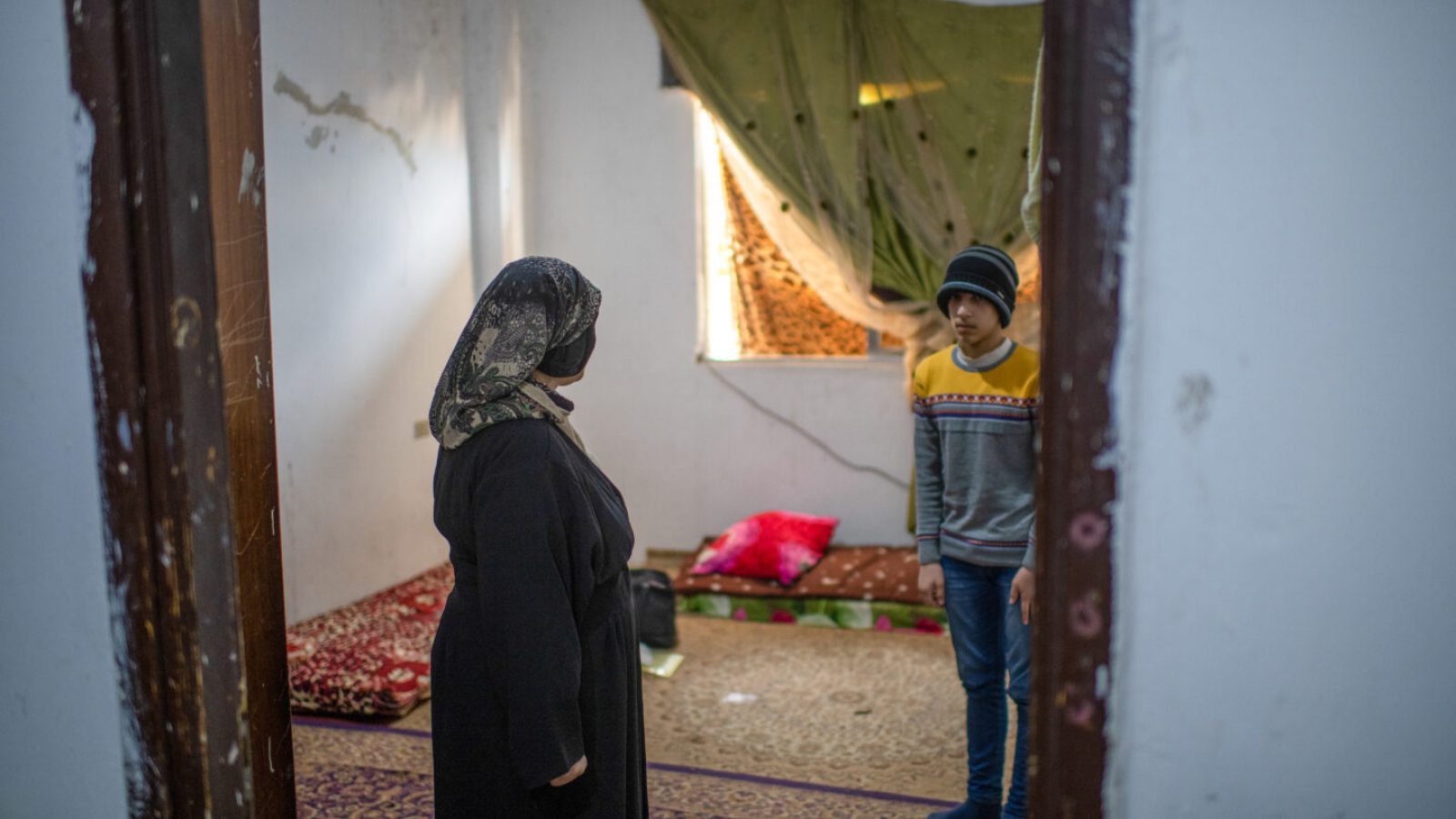Overcoming challenges: a tale of refugees’ solidarity
Extending a helping hand in times of widespread misery and dire need is not always an easy thing to do. For Ibtesam though, it is the only way to go, and has been her reason to “keep going”. The mother of four has been benefiting from the monthly cash assistance programme set up by the UNHCR as part of the EU Regional Trust Fund in Response to the Syrian Crisis (Madad Fund). Thanks to this allowance, she is able to provide for her family’s needs and offer them a more decent chance at life.
When she arrived in Amman seven years ago, Ibtesam had an incredible amount of challenges to face: four children, a disabled husband, and no prospect for work as an Iraqi refugee. She started relying on a network of friends to find daily job opportunities. “But that is not easy because I also have to care for my eldest son, Mustafa, who has serious health issues.” When the family arrived in Jordan, Mustafa, 15, was bullied and beaten up at school. This left him severely injured and unable to care for himself. Due to his head injuries, the boy faces serious health issues, including weakness and frequent fainting. “This means that I have to constantly be there for him, and make sure he does not get worse,” explains his 55-year-old mum. This also means that with such constraints, there were always fewer opportunities for her to find work. “But I am willing to find any solution, even if it means working at night, in order to care for Mustafa during the day, just to cover the rent.”
In spite of her difficulties, Ibtesam did not hesitate to share her home with another family in need. Arriving from the same Baghdad neighbourhood, Kafi and her three children had no income or place to stay.
“I offered them to stay in our second bedroom so now the 11 of us live together,” Ibtesam recounts. “We share everything we have with them, as they don’t have any income.” Meanwhile, both families are kindly offered free Wi-Fi by their Syrian neighbours. This chain of solidarity is common in Jordan, where the smallest gestures come a long way.
Cash assistance: an opportunity for a decent life
Because they are unable to obtain any work permits, non-Syrian refugees often find themselves in dire situations. A reality that the UNHCR’s monthly cash assistance programme seeks to address. The organisation identifies refugee families in need, using a context-specific framework to assess their economic vulnerability.
Through this approach, UNHCR and its partners target families and enable them to meet, at a minimum, their most basic needs, by providing monthly cash assistance. Ibtesam now receives JD 140 (EUR 180) in cash assistance from UNHCR every month. Most of it goes to cover the rent, which is JD 180.
“Whilst it is still complicated -we are still two months behind on rent- this has helped my children to stay in school.” A priority for her. “I don’t mind skipping meals, but having a shelter is very important. I just want my children to be safe, to be able to go to school and complete their education. Nothing more, nothing less.”
Ibtesam also uses some of the money to cover the JD 40 school bus fee for Mustafa and his sister, Maria. At 11, the young girl is a dedicated student in class, looking forward to becoming a lawyer, “so that I can defend people’s rights”. Mustafa on the other hand prefers English, “his favourite lesson”.
The EU and its Member States are the leading donors of international aid to those affected by the conflict in Syria. Since the start of the crisis in 2011, the EU has mobilised more than €25 billion to support the most vulnerable Syrians inside the country and across the region. The EU has organised, over 5 consecutive years, from 2017 to 2021, conferences supporting the future of Syria and the region. These have been the main pledging events for the Syria crisis. In 2021, the European Commission mobilised over €141 million in humanitarian aid to provide vital assistance to millions of people inside Syria. Adding to its initial allocation of €130 million, the Commission provided over €10 million to support people suffering from the severe water crisis and drought in northern Syria. The funding also helps support people throughout the winter. An additional €1 million was allocated for COVID-19 response.




























 Syria
Syria 




